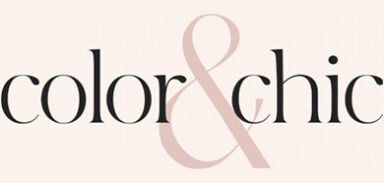
Financial fitness is something you constantly have to work on. Similar to being strong and healthy when it comes to your body, those exercises are key to maintaining what you’ve built or are hoping to achieve. It’s the same with money! It takes upkeep, maintenance and I know for me, constant check-ins.
In the first post in this Money Talks series, I encouraged you to take a quick quiz to learn your money language. You also had some homework to break down your spending and see where you can cut back expenses and balance things out a bit. Now, we’ll talk about one way you can save money or flex your financial muscles, your road to personal wealth and our favorite finance books.
We are not financial advisors. The content in this post is for educational purposes only and merely cite our own personal opinions. In order to make the best financial decision suiting your own needs, you must conduct your own research and seek the advice of a licensed financial advisor if necessary. Know all investments involve some form of risk and there is no guarantee that you will be successful in making, saving, or investing money; nor is there any guarantee that you won’t experience any loss when investing. Always remember to make smart decisions and do your own research!
Financial Fasting
I recently did this and while it can be so hard to get through, coming out of it feels fantastic. What is financial fasting? This can be different for everyone, but for us it is a period of time (usually a month) where we do not spend any excess money. We still pay our bills, buy groceries, get gas but keep all things to a bare minimum. Will a $4 boba tea hurt me? No, but during financial fasting, I still don’t get one. I highly financial fasting and have set a goal to do it once a quarter.
Cut Spending & Boost Savings
The road to financial freedom comes with cutting costs and making more money. If you can do both, it’s ideal and that’s what financial fasting can do. It’s a way to really cut down on spending since you know you’re not supposed to buy anything. A sweater is on sale for 20% off? Yes, you may be saving 20%, but you are still spending 80% of the cost.
Johnny and I have done financial fasting many times before: before we took a trip to the 2018 Winter Olympics, before I moved back home to Dallas and the big one was before we closed on our house. Even though we budget for these things and can afford them, it makes me feel better to have more of a cushion and nest egg so I don’t feel as squeezed.
The reason I did a financial fasting in February is I’ll be going to New York City to purchase my wedding gown. Similar to before, I have budgeted and priced out what I can spend on my gown and on the trip. It’s ready to go, but I’m still spending a lot of money, so it makes me feel better to really boost my savings beforehand.
Testing Your Mental Strength
Is your mental willpower strong enough to withstand impulse purchases and things you really don’t need? I think about this all the time. Little purchases add up such as the $4 boba tea I talked about or a pint of ice cream while you’re on a Target run. The reason Johnny and I are firm believers in looking at your credit card and bank statements every month (or more if you can) is to be fully aware of what you are spending. When you have to see it in person, you realize how much $10 here or $20 can add up.
Not only will testing your mental strength be a good exercise, but it can prepare you for times of emergencies and living below your means so you can achieve wealth in the long run.
I Cheated – I’ll Admit It
I did not make it through February without any unforeseen purchases. We did buy the remaining roller shades for our living room. They were 20% off, I had budgeted to buy them sometime in the spring so I pulled the plug.

The Road to Personal Wealth
Now that you’ve gotten a sense of your spending and gauged your ability to save money, we can really start to think about your personal road to wealth.
First, you need to understand the psychology of money.
Let me tell you the story of two investors, neither of whom knew each other, but whose paths crossed in an interesting way.
Grace Groner was orphaned at age 12. She never married. She never had kids. She never drove a car. She lived most of her life alone in a one-bedroom house and worked her whole career as a secretary. She was, by all accounts, a lovely lady. But she lived a humble and quiet life. This made the $7 million she left to charity after her death in 2010 at age 100 all the more confusing. People who knew her asked: Where did Grace get all that money?
But there was no secret. There was no inheritance. Grace took humble savings from a meager salary and enjoyed eighty years of hands-off compounding in the stock market. That was it.
Weeks after Grace died, an unrelated investing story hit the news.
Richard Fuscone, former vice chairman of Merrill Lynch’s Latin America division, declared personal bankruptcy, fighting off foreclosure on two homes, one of which was nearly 20,000 square feet and had a $66,000 a month mortgage. Fuscone was the opposite of Grace Groner; educated at Harvard and University of Chicago, he became so successful in the investment industry he retired in his 40s to “pursue personal and charitable interests.” But heavy borrowing and illiquid investments did him in. The same year Grace Goner left a veritable fortune to charity, Richard stood before a bankruptcy judge and declared: “I have been devastated by the financial crisis … The only source of liquidity is whatever my wife is able to sell in terms of personal furnishings.”
The purpose of these stories is not to say you should be like Grace and avoid being like Richard. It’s to point out there is no other field where these stories are even possible.
In what other field does someone with no education, no relevant experience, no resources, and no connections vastly outperform someone with the best education, the most relevant experiences, the best resources and the best connections? There will never be a story of a Grace Groner performing heart surgery better than a Harvard-trained cardiologist. Or building a faster chip than Apple’s engineers. Unthinkable.
But these stories happen in investing.
That’s because investing is not the study of finance. It’s the study of how people behave with money…
You can finish the Psychology of Money blog post by Morgan Housel here
Your road to wealth starts with a great education. No, this isn’t some fancy $50,000 MBA. This is the best $1-20 return on investment you’ll make on your life. You can start with any of these books. They’re all personal finance 101 and there’s a lot more material you’ll find to graduate to the 501 class. One thing I’m certain about is that more knowledge of finance does not mean more wealth. Once you’ve read any one of these books and put them to action, you’ll be in the top 10% of those charting their path to wealth.
If you have friends or family who’ve just graduated high school or college, please send this to them. If you have a friend who needs to hear this, please forward this and have them subscribe. Compounding is the fourth wonder of the world and works better when you get in the game earlier in life.
Our Favorite Finance Books
Knowledge is wealth and we are always looking for ways to improve. Here are some of our favorite books we’ve read on money, finances and everything in between. We hope you’ll enjoy them, too.
Psychology of Money
Since we are talking about the psychology of money, we might as well kick it off with this book. It is a favorite. We have multiple copies so we can give it out as gifts to friends. Morgan Housel provides a tour de force of whimsical and moving stories that change your relationship with money. He has a chapter that’s one page. There’s no fluff. Just a bunch of fantastic stories of money and human behavior to learn from. If that recommendation wasn’t enough, it’s not every day Cavalry Media, producer of the Social Network and Fifty Shades of Gray, licenses your book to make a video series or movie with all the financial trappings.
Geometry of Wealth
It’s always funny when the author writes the sequel to a previous book that is really a prequel. This book is a pretty short and repetitive read on personal financial planning. What stands out to me about the author’s method is his simple square, triangle, and circle metaphors that make his tried and true ideas palatable and easy to understand. Really it boils down to working backward from a life of meaning and then setting your financial goals accordingly. This is entry-level stuff, so if you’ve got a bonafide financial planner, you’ve probably got this stuff covered. If not, read this and get started. Everyone wishes they started earlier because compounding is the fourth wonder of the world!
I Will Teach You to be Rich
If you don’t naturally gravitate toward reading about money or investing, read this book, follow the guidelines and automate whatever you can. I know the title can sound a little offputting, but the book is worth it. I Will Teach You to be Rich forces you to ask yourself $30,000 questions, not $3 questions. For us, this was the most important takeaway.
Unshakeable: Your Financial Freedom Playbook
It looks like many more are interested in investing than we thought. You lose by not playing, so get in the game. Tony Robbins breaks that down in this classic we recommend to practically everyone. Regardless of where you are in your financial journey at this point, this book can help you get on track for financial freedom.
Rich Dad Poor Dad
It’s all about attitude. That’s what this book boils down to. How you view money, your attitude toward it are linked to your success and your own personal wealth. There’s a reason this is the #1 personal finance book of all time, it’s really that good.

























